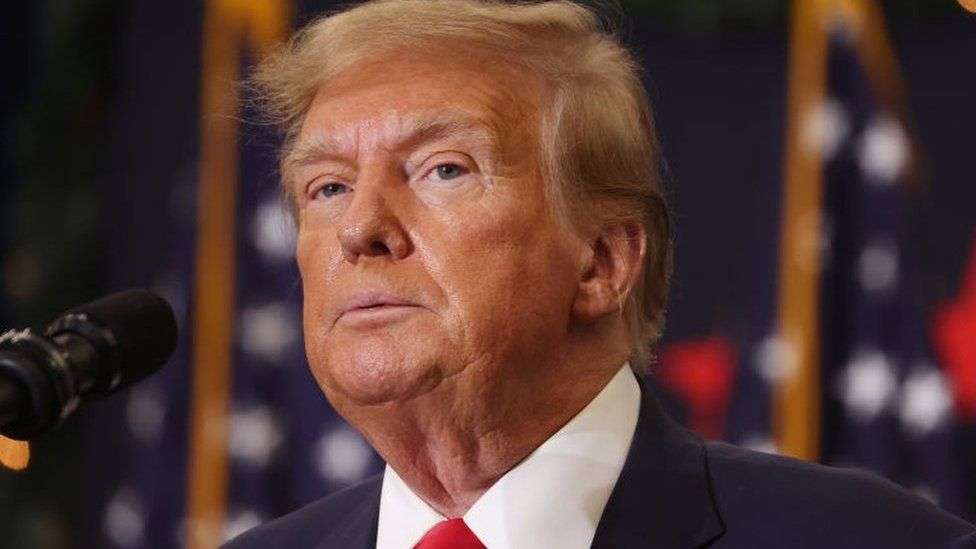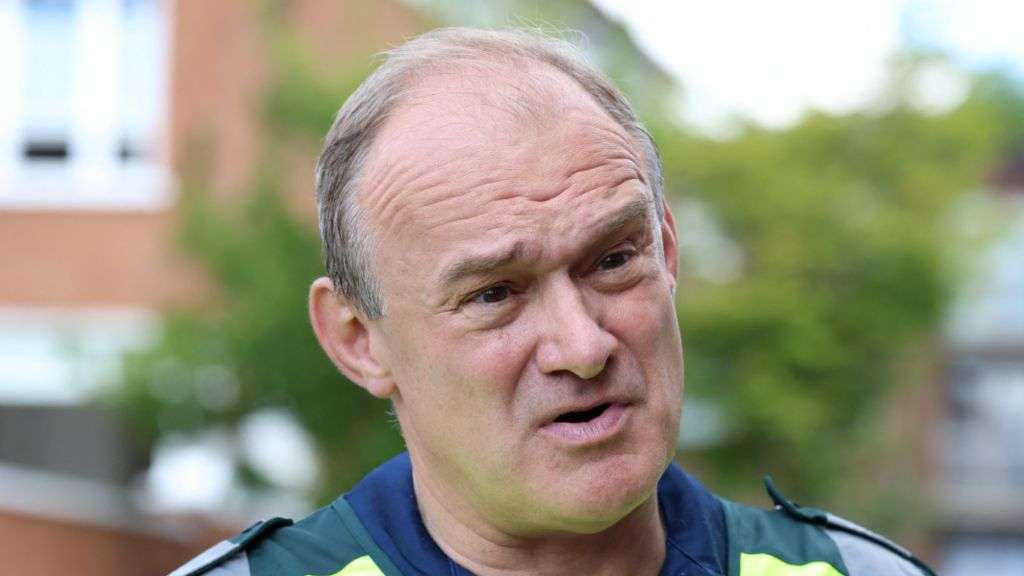Donald Trump has asked the US Supreme Court to reverse an unprecedented Colorado ruling that barred him from running for president in that state.
Colorado's top court said last month Mr Trump was not an eligible primary candidate because he had engaged in insurrection over the US Capitol riot.
His appeal comes a day after he challenged a similar decision in Maine.
Dozens of lawsuits have been filed in multiple states seeking to disqualify Mr Trump from the November 2024 ballot.
Courts in Minnesota and Michigan have dismissed attempts to disqualify the former US president and Republican front-runner, while other cases. including in Oregon, are still pending.
Mr Trump's appeal to the nation's highest court over the Colorado decision means that the nine Supreme Court justices could end up making a hugely consequential judgment on his eligibility to run for federal office.
The Republican primaries in Colorado and Maine are scheduled for 5 March - so-called Super Tuesday, when many states hold their votes to choose party contenders. But postal ballots need to be sent out weeks beforehand, meaning the Supreme Court is under growing pressure to act.
A US Supreme Court ruling on the issue of Mr Trump's eligibility, based on whether a Civil War constitutional amendment disqualifies him, would be binding nationwide.
The 14th Amendment of the US Constitution bans anyone who has "engaged in insurrection or rebellion" from holding federal office, but the former president's lawyers argue that the 14th amendment does not apply to the president.
In a statement, the Trump campaign accused the Colorado Supreme Court and President Joe Biden, a Democrat, of "doing all they can to disenfranchise all American voters by attempting to remove President Trump".
"This is an un-American, unconstitutional act of election interference which cannot stand," campaign spokesman Steven Cheung added.
"We urge a clear, summary rejection of the Colorado Supreme Court's wrongful ruling and the execution of a free and fair election in November."
The Colorado Supreme Court decision was narrow, with four judges in favour and three against. All seven justices were appointed by Democratic governors.
Mr Trump's appeal to the Supreme Court was widely expected. The decisions to strike him from the ballot in Colorado and Maine are on hold until the legal challenges can be resolved.
The top court has a conservative majority - with three justices appointed by Donald Trump when he was president.
But speaking to Fox News on Wednesday, Trump attorney Alina Habba said the former president was concerned the conservative-leaning Supreme Court could rule against him in order to "shy away from being pro-Trump".
"That's a concern he's voiced to me, he's voiced to everybody publicly, not privately," she said. "And I can tell you that his concern is a valid one."
The Colorado case marks the first time in US history that the 14th Amendment has been used to disqualify a presidential candidate from the ballot.
While Mr Trump's alleged efforts to subvert the outcome of the 2020 presidential election are the focus of trials in federal court and a state court in Georgia, Mr Trump has not been charged with inciting insurrection in either case.
Legal experts said the politically contentious Colorado case put the Supreme Court in a precarious and difficult position.
"The Supreme Court is being asked to define the boundaries of democracy," Samuel Issacharoff, a constitutional law professor at New York University, said.
One of the most challenging aspects, Prof Issacharoff said, was that the former president "has tremendous support on one side of the aisle and tremendous vilification on the other".
On Tuesday, David Janovksy, a senior policy analyst at the Project on Government Oversight, an independent watchdog, said that the Supreme Court taking up the issue was the "best outcome" to solve the issue nationally.
"The fact that we now have two states in Colorado and Maine that have made this determination against the backdrop of other states that have declined to go that far means that if there was ever a case for the Supreme Court to resolve, this would be it," he said.
"Time is of the essence."








